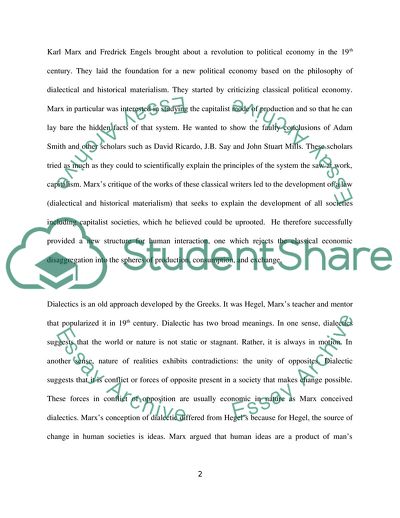Cite this document
(What Analytical Insights do Marxist Political Economy Provide Essay, n.d.)
What Analytical Insights do Marxist Political Economy Provide Essay. https://studentshare.org/politics/1710483-in-1989-some-observers-claimed-that-marxism-was-obsolete-what-if-any-analytical-insights-can-marxist-political-economy-still-provide
What Analytical Insights do Marxist Political Economy Provide Essay. https://studentshare.org/politics/1710483-in-1989-some-observers-claimed-that-marxism-was-obsolete-what-if-any-analytical-insights-can-marxist-political-economy-still-provide
(What Analytical Insights Do Marxist Political Economy Provide Essay)
What Analytical Insights Do Marxist Political Economy Provide Essay. https://studentshare.org/politics/1710483-in-1989-some-observers-claimed-that-marxism-was-obsolete-what-if-any-analytical-insights-can-marxist-political-economy-still-provide.
What Analytical Insights Do Marxist Political Economy Provide Essay. https://studentshare.org/politics/1710483-in-1989-some-observers-claimed-that-marxism-was-obsolete-what-if-any-analytical-insights-can-marxist-political-economy-still-provide.
“What Analytical Insights Do Marxist Political Economy Provide Essay”. https://studentshare.org/politics/1710483-in-1989-some-observers-claimed-that-marxism-was-obsolete-what-if-any-analytical-insights-can-marxist-political-economy-still-provide.


